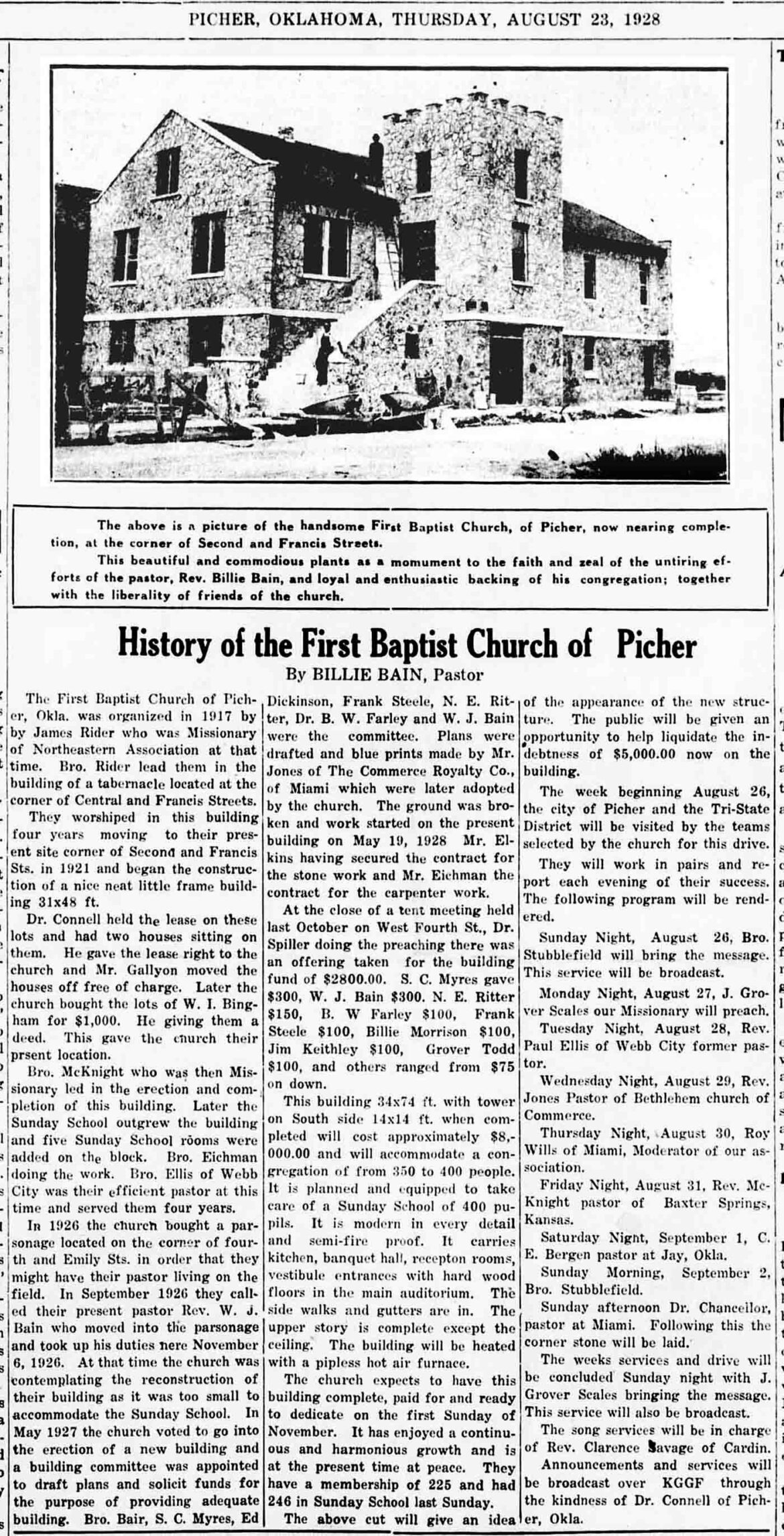The history of the Baptist Church is both intricate and compelling, encapsulating a narrative that is as diverse as the believers it has nurtured over the centuries. Understanding its genesis requires not only a historical perspective but also a comprehension of the theological undercurrents that shaped its evolution. The Baptist Church, as part of the larger Christian tradition, emerged in a milieu marked by significant socio-religious transformations, particularly during the Reformation period of the 16th century.
To discern who founded the Baptist Church, one must first grapple with the contentious nature of its origins. Unlike many denominational histories that can point to a singular founder, the Baptists arose from a confluence of various movements advocating for believers’ baptism and congregational autonomy. Early pioneers such as John Smyth, who is often credited as one of the founders, sought to define their faith against the prevailing structures of church governance and practices of their time. In 1609, Smyth baptized himself and then subsequently baptized others, marking a pivotal moment in the establishment of a tradition that valued individual faith and personal commitment over institutional affiliation.
Inherent in this practice was the theological conviction that baptism should be reserved for those who have consciously accepted Christ—a reflection of the believer’s faith rather than a mere ritual performed on infants. This belief posits that faith precedes baptism and baptism signifies an outward expression of an inward grace. This contrasts sharply with the infant baptism practiced by many other Christian denominations and underscores a fundamental tenet of Baptist identity.
Another transformative figure in the early development of the Baptist Church was Thomas Helwys. He not only embraced the notion of adult baptism but also advocated for religious liberty and the separation of church and state. Helwys’ writings and his establishment of the first Baptist church on English soil in 1612 represented significant steps toward defining Baptist ecclesiology, emphasizing a governance structure where local congregations exercised considerable authority and autonomy.
Integral to the understanding of the Baptist tradition is its relationship with the broader Reformation. The Reformation was characterized by a movement away from the Roman Catholic Church’s practices and doctrines. Reformers such as Martin Luther and John Calvin challenged the status quo, advocating for salvation by faith alone and emphasizing Scripture as the ultimate authority. This milieu of questioning and challenging ecclesiastical norms bore fruit in the emergence of various sects, including the Anabaptists, who were precursors to the Baptists regarding the practice of believer’s baptism. The Anabaptists’ radical rethinking of church and society laid the groundwork for extremities in thought that the Baptists would later espouse.
The Baptist Church embodies a tapestry of beliefs that go beyond mere baptism; it encapsulates a broader view of faith and community. Central to Baptist worship is the practice of congregational autonomy, where each church governs itself under the guidance of the Holy Spirit. This model stands in stark contrast to hierarchical church structures, fostering an environment where personal faith experience is paramount, and communal decision-making reflects democratic principles of governance.
Moreover, Baptists hold a robust belief in the authority of Scripture, which is not merely to inform doctrine but to transform lives. This perspective is often accompanied by a call to evangelism, urging all believers to share their faith with others. The Great Commission, which beckons individuals to “go therefore and make disciples of all nations,” resonates deeply within Baptist communities. The interplay between personal faith and communal responsibility creates an active, living tradition, where each believer is both a recipient of grace and a vessel of sharing that grace.
As Baptists navigated the complexities of faith in a rapidly changing world, they have also adapted to social changes. The American Civil Rights Movement serves as a poignant illustration of this, with prominent Baptist figures such as Dr. Martin Luther King Jr. taking moral stands against injustice. The core tenets of Baptist teaching regarding equality and human dignity informed their participation in societal change, demonstrating the profound impact of faith in action beyond the church walls.
In contemporary settings, the Baptist Church continues to evolve while maintaining its roots in Scripture and individual faith commitment. Diverse expressions of Baptist identity can be seen in various affiliations, from the Southern Baptist Convention—the largest Protestant denomination in the United States—to smaller, more progressive congregations. This diversity underscores a central Baptist premise: that freedom within faith allows for personal deviations in practice while remaining united in core theological beliefs.
In conclusion, the question of who founded the Baptist Church encapsulates a rich tapestry woven from numerous influences, historical events, and theological developments. The interplay between faith, baptism, and the Reformation reflects a broader story of Christians seeking to express their beliefs authentically amidst changing societal contexts. Ultimately, the Baptist Church’s legacy is one of resilience, autonomy, and a passionate commitment to the principles of faith that continue to foster vibrant communities of believers dedicated to the gospel. This narrative invites present and future generations to explore the depths of faith and the significance of baptism as a responsive act of obedience to God’s calling.



